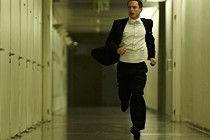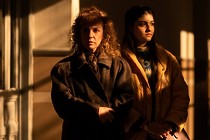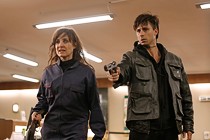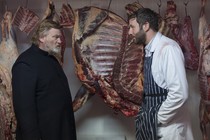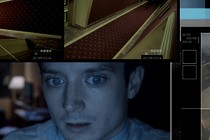Grand piano: stage fright at its best
- Eugenio Mira’s third film unfolds like a stifling, agile and theatrical game, an exercise in style that looks for tension and spectacle without worrying about its credibility.
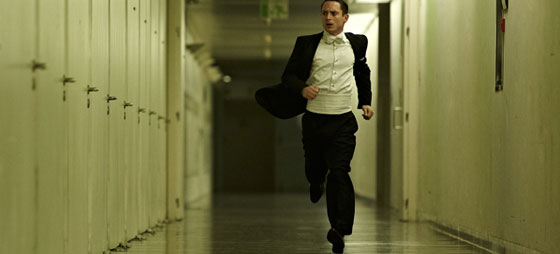
Were Hitchcock’s fantastic films credible? And what about the excess narrative genius Brian de Palma, or the world renowned film Buried [+see also:
film review
trailer
interview: Rodrigo Cortés
film profile] by Rodrigo Cortés, which takes place entirely in a coffin? It is along the same path as these three crucial references in his filmography that Eugenio Mira engages himself with Grand Piano [+see also:
trailer
interview: Eugenio Mira
film profile].
The parallels between the film and The Man Who Knew Too Much are plentiful, since Mira borrowed from the great Alfred a few lines in his pentagram. De Palma’s influence is even more manifest because the Spanish filmmaker grew up with his films. As for his compatriot Cortés (whose most recent production is Red Lights [+see also:
trailer
interview: Rodrigo Cortés
film profile]), he took this film under his wing and worked his magic as a producer, because he and Mira share the same passion for scary thrillers and the visual exploitation of closed spaces that allow for the creation of a claustrophobic feeling. The four directors, masters and student, are filmmakers for whom there was never any doubt that if a story’s credibility had to be sacrificed at the service of rhythm, suspense and emotion, the choice would be rapidly made.
Thus, whomever looks for logical explanations to what happens during the 90 minutes of Grand piano can go straight to customer services... On the other hand, if the spectator allows himself to be transported by the elegant directing, the powerful atmosphere and the film’s emotional crescendo, he will be overwhelmed like a music lover during the New Year’s Eve concert of the Vienna Philharmonic Orchestra.
The topic of the film, imagined by American scriptwriter Damien Chazelle, is minimal: a young pianist, Tom Selznick (played convincingly by Elijah Wood, who already played in the Spanish film The Oxford Murders [+see also:
film review
trailer
interview: Álex de la Iglesia
interview: Gerardo Herrero and Mariela…
film profile], by Alex de la Iglesia, and who can soon be seen in Open Windows [+see also:
film review
trailer
interview: Nacho Vigalondo
film profile], Nacho Vigalondo’s audacious new movie, soon in theatres) goes to Chicago several years after he gave up his promising career there after a failed recital during which he played the very complex composition of a recently passed away maestro. Under the gaze of his beautiful young wife, a famous actress, who follows his concert from the balcony, not only is he faced with the piano that caused his failure and his own stage fright, but he is also terrified to make a single mistake as a deranged man threatens to kill him and his wife if he makes the slightest error. The game of cat and mouse which begins here and will turn out to be fatal is depicted in a baroque fashion and in the same opera style that already characterized his previous film, Agnosia [+see also:
trailer
film profile].
The thriller almost takes place in real time in an auditorium where the spectator has the best seat since, while he enjoys the concert, he knows something that the rest of the public ignores, as they are transported by the Selznick’s return to artistic life. From this privileged position, the events carry even more suspense although the situations that arise are so extreme, surprising and impossible that they are on the edge of credibility, as previously mentioned. If he has allowed himself to be snapped away by this sophisticated spectacle, which is executed by Mira without shame or fear of ridicule, the fear that results from it and invades Wood’s character also takes over the spectator.
The overwhelming audacity of the director clashes with our time where logic and explanation are king and during which the spectator himself demands there be no dissonant note in the cinematographic concert played before his eyes. Through the extravagance of the show he delivers, Mira challenges stage fright and the most rational spectators.
(Translated from Spanish)
Did you enjoy reading this article? Please subscribe to our newsletter to receive more stories like this directly in your inbox.















